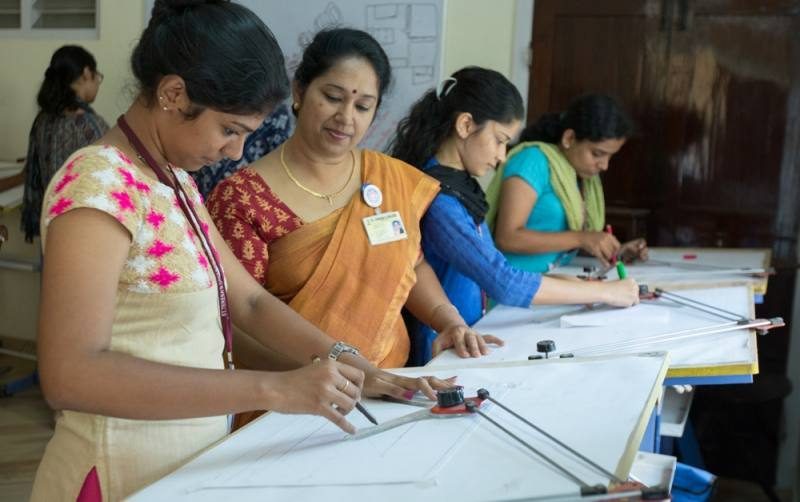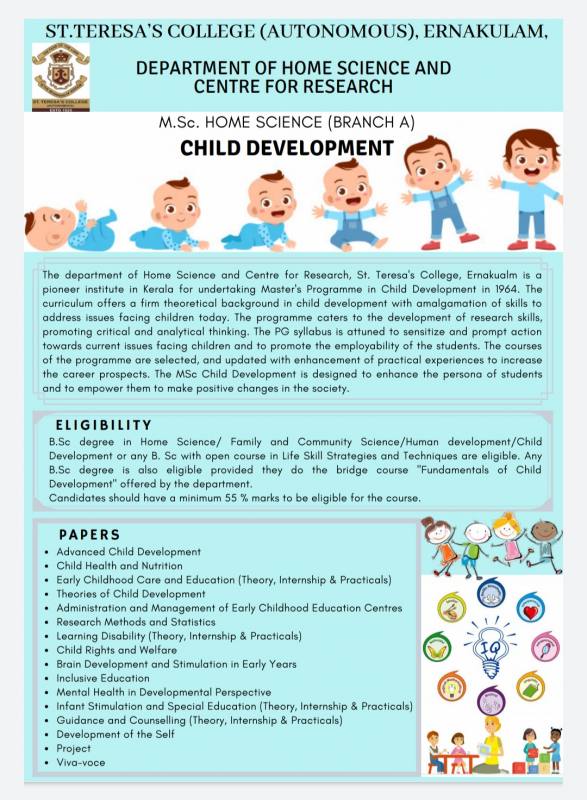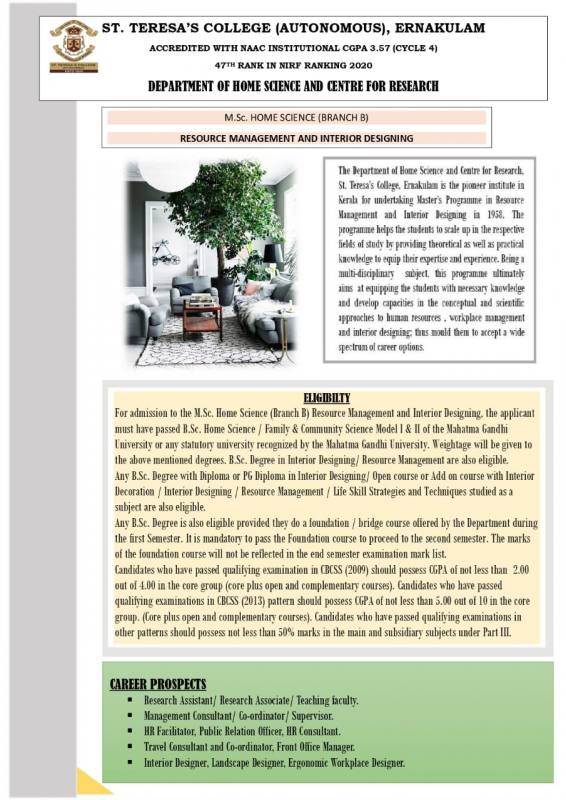Department of Home Science
It was the far-sighted vision and zealous effort of the then Principal Mother Digna and Mother Bernadine, the Foundress of the department that culminated in the establishment of the Department of Home Science in 1958 with the commencement of the UG Course. Fifty-five years of merit and excellence have rolled by in the history of the Home Science Department. Post Graduate courses in Family Resource Management, Child Development, and Food and Nutrition commenced in 1962, 1964, and 2001 respectively. In the year 1985, the department was recognized as a research center – the only research center for Home Science under Mahatma Gandhi University. Today the Home Science curriculum has been restructured and scientifically planned to make it multi-dimensional and skill oriented. Backed by a competent faculty team, the department excels in all three aspects of higher education – teaching, research, and extension.
Message from HOD
It was the far-sighted vision and zealous effort of then Principal Mother Digna and Mother Bernadine the foundress of the Department that culminated in the establishment of the Department of Home Science. Home Science (Family and Community Science) as a faculty is a mélange of science and art with unique flavours from various subjects of human relevance and interest. It is an interdisciplinary field of study comprising Food Science and Nutrition, Human Development, Resource Management, Textiles and Clothing and Extension and Communication. The individual, the family and the community are the foci of home science. Food Science and Nutrition has vast scope ranging from alleviation of malnutrition from the micro to macro level, preventive, promotive and therapeutic care in hospitals, food industries as well as food service managers in various establishments. Textiles and clothing can have family and industrial orientation in today’s economy with an entrepreneurial base.
The subject places considerable emphasis on Human Development across the lifespan. Early childhood education, family life education, gender sensitization, child abuse,non-formal education form components of the subject. Resource management emphasises the principles of strategic human resource management. It also helps in the identification, mobilisation and effective utilisation of resources for sustainable development. Interior decoration and creative art form an integral part of the subject enhancing knowledge of decorating in both residential and commercial spaces. Extension education is the propagation of useful research findings and various ideas among rural people to bring about the desired social and behavioural changes.
➢ The curriculum in Home Science has an integrated approach of combining theory, practicals, and fieldwork. Competency-based courses in Home Science have sound market value and would lead to social and economic empowerment. Thus the scope of Home Science is not limited to the activities within the home but has a wider perspective that forms the basis of challenging professions in varied fields.








